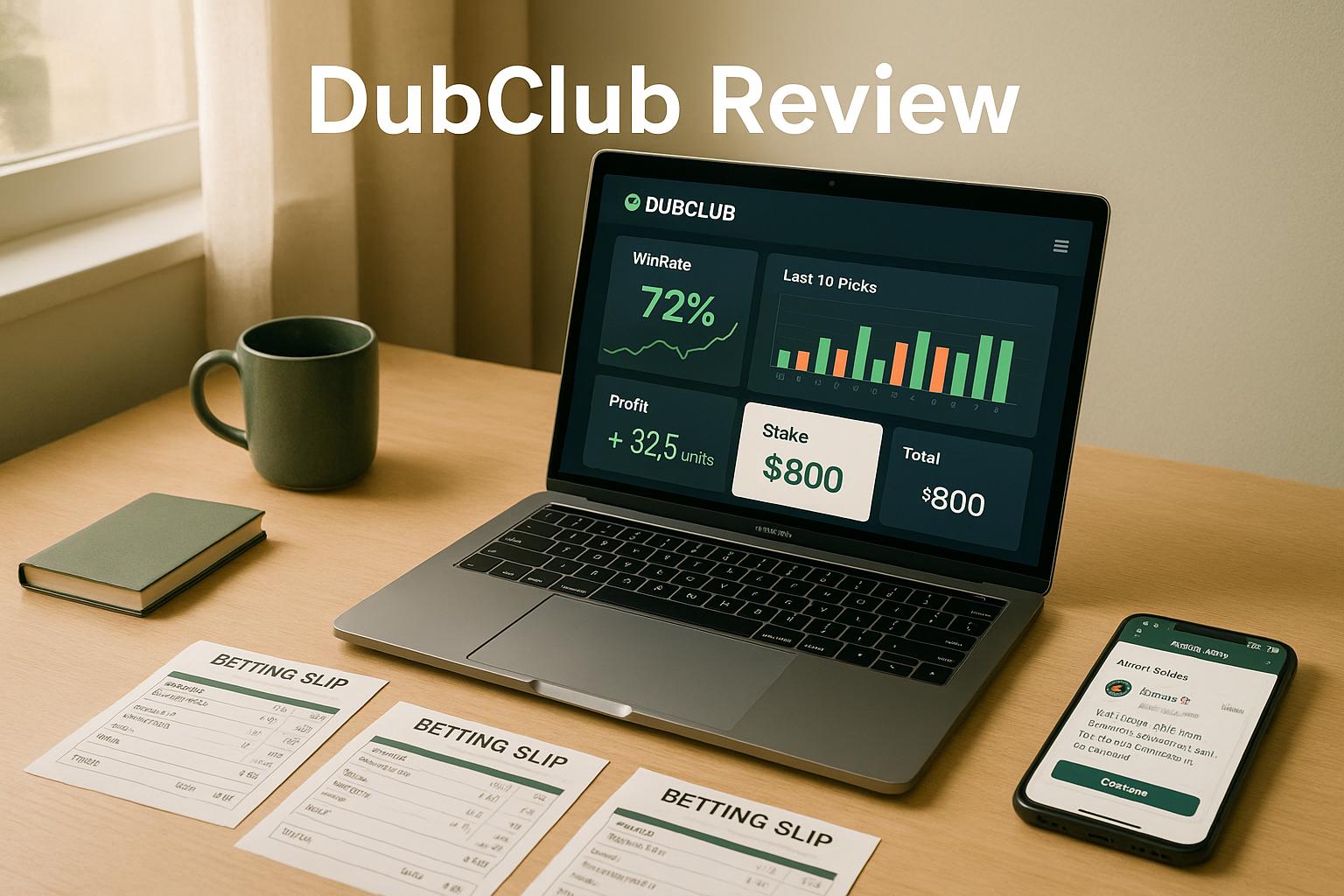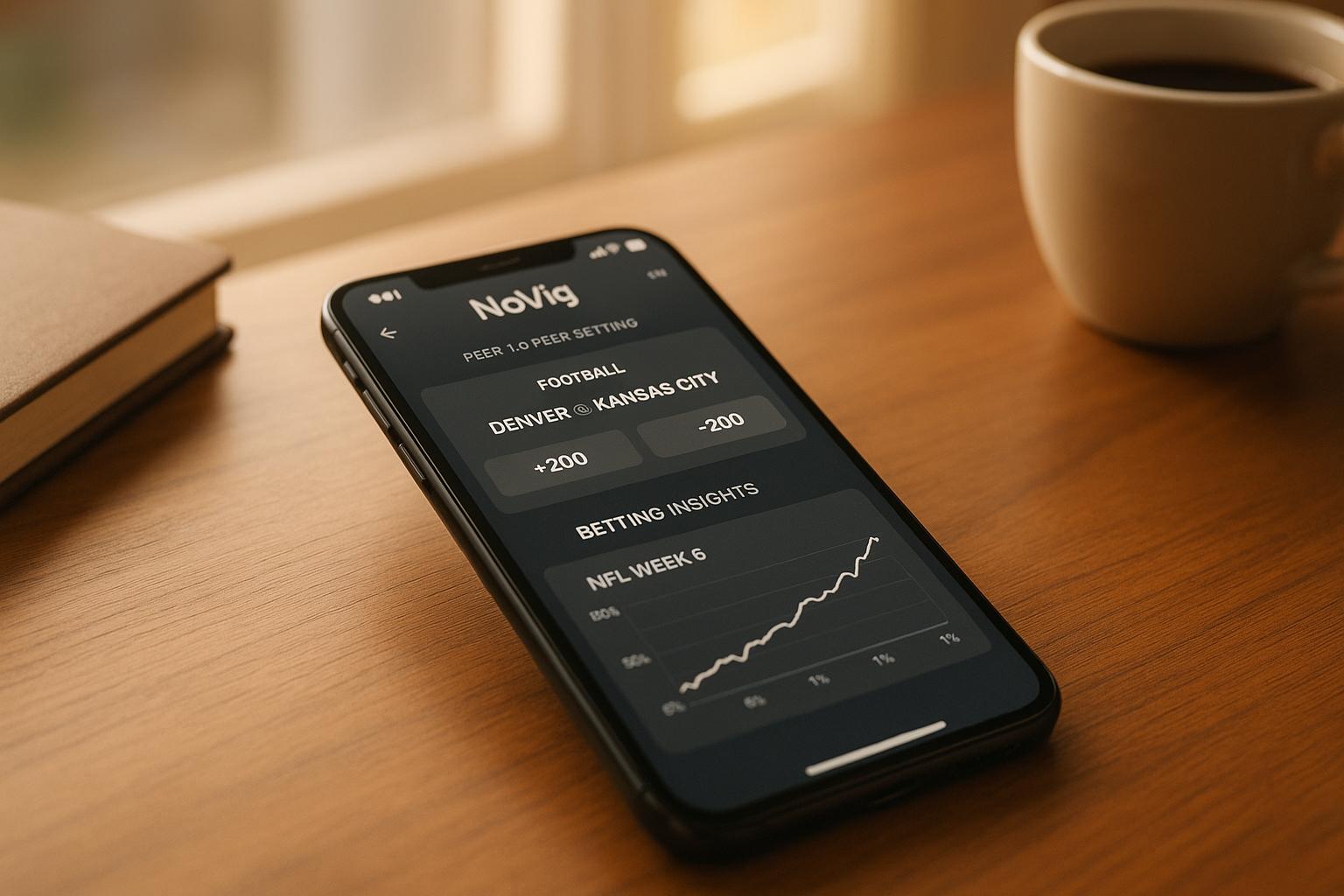- Check Track Records: Look for long-term results, verified by third-party platforms like Cappers Watchdog or Verified Cappers. Avoid services boasting unrealistic win rates above 60%.
- Transparency in Win-Loss Records: Reputable sellers share complete historical data, including ROI and closing line values.
- Read User Reviews: Focus on verified reviews and look for consistent feedback about performance and customer service.
- Compare Costs and Returns: Balance subscription prices with potential ROI. A steady 3–6% ROI is a good benchmark.
- Test Customer Service: Quick, clear responses and well-defined policies signal reliability.
- Verify Sports Knowledge: Specialists in specific sports or leagues often provide more accurate picks.
- Examine Bonus Offers: Scrutinize terms for deposits, rollovers, and withdrawals to avoid hidden traps.
Quick Comparison Table
| Criteria | Positive Indicators | Red Flags |
|---|---|---|
| Track Record | 500+ bets, 6+ months data | Fewer than 500 bets, no verification |
| Win Rate | 53–55% (point spreads) | Claims above 60% |
| Pricing | Transparent tiers | Hidden fees |
| Customer Service | Fast, personalized responses | Delayed or unclear communication |
| Sports Knowledge | Specialization in specific leagues | Claims expertise in all sports |
| Bonus Terms | Clear, reasonable conditions | Complicated or hidden rules |
I Bought Sports Betting Tips for 100 Days – Did They Win?
1. Check Track Records
Looking into historical performance is crucial for making informed decisions. Independent platforms can help by monitoring and verifying handicappers' results.
Use Third-Party Verification
Here are some platforms that independently verify handicappers' records:
| Platform | Established | Features |
|---|---|---|
| Cappers Watchdog | 2003 | Free monitoring, independent verification, detailed win/loss tracking |
| Cappers Monitor | Active | Multiple ranking lists, flexible line reporting, ROI tracking |
| Verified Cappers | Active | Premium monitoring, background checks, and pre-game pick submission |
When choosing a service, prioritize those that:
- Require pre-game pick submissions.
- Offer full win/loss records.
- Provide detailed ROI breakdowns.
- Conduct thorough background checks.
These steps ensure you're evaluating reliable and consistent performance.
Evaluate Long-Term Results
Long-term performance data is essential for assessing reliability. Key metrics to focus on include:
- Closing Line Value (CLV): A strong indicator beyond basic win-loss numbers.
- Overall Yield: Reflects profit relative to the investment.
- ROI: Measures returns over multiple seasons.
- Sample Size: Larger sample sizes are generally more trustworthy.
- Win Rate: Legitimate handicappers typically hit a 53–55% success rate on point spread bets.
Request data spanning multiple seasons and sports. Be cautious of services that only highlight recent successes or fail to provide detailed breakdowns. A reputable handicapper will openly share both wins and losses, offering a transparent view of their performance.
Additionally, review their bankroll strategy, including starting amounts and bet sizes. Keep in mind how subscriber volume might affect the odds available to you.
2. Look for Clear Win-Loss Records
Once you've reviewed overall track records, diving into detailed win-loss data can help you better assess a pick seller's reliability. Understanding realistic performance metrics is key to making informed decisions.
Watch for Warning Signs
Detailed win-loss data can reveal red flags that may indicate misleading or incomplete performance claims.
| Warning Sign | Implication | Impact |
|---|---|---|
| No losing streaks | Missing data | Hides natural variance in performance |
| Short-term results only | Limited visibility | Masks potential long-term problems |
| Missing closing lines | Incomplete data | Prevents assessment against market odds |
| Win rates above 60% | Unrealistic claims | Exceeds the typical 53-55% success rate for spreads |
Reputable handicappers are upfront about their performance, sharing both wins and losses. This level of transparency fosters trust and demonstrates a commitment to accuracy.
Check Record Transparency
A credible pick seller will offer:
- Complete Historical Data: Access to all past picks, available in formats like PDFs or Excel files.
- Closing Line Values: A comparison of pick odds with the final market prices.
- Performance Metrics: ROI calculations and detailed bankroll tracking.
- Independent Verification: Third-party validation of their claimed results.
"The odds offered just before a game begins are called the closing line and reflect all statistics, news, wagering activities and market sentiment. The closing line should be the most efficient point of the market, and therefore the most accurate representation of underlying probability." - Dafni Serdari
When reviewing records, prioritize large sample sizes and look for natural fluctuations in win-loss patterns. Verified and complete records are a strong indicator of a seller's reliability and professional approach.
3. Read User Reviews
User reviews can shed light on a pick seller's reliability and overall performance. They serve as a useful complement to the transparency and historical records discussed earlier. When evaluating reviews, focus on verified ones and look for patterns that indicate the quality of service.
Browse Rating Platforms
Check out verified platforms to assess pick sellers. Here's a quick comparison:
| Pick Seller | TrustScore | Review Count | Highlights |
|---|---|---|---|
| BettorEdge | 4.8 | 66 | Consistent performance |
| Sharpline Sports | 4.7 | 63 | Quality analysis |
| Nobrainerwagers | 4.6 | 107 | Large user base |
| All The Picks | 4.4 | 20 | Detailed insights |
Don't just rely on the overall rating. Consider how many reviews the seller has and how long they've been active. A high score with only a handful of reviews might not give a full picture. Digging into the review content itself can help you better understand a seller's trustworthiness.
Spot Review Patterns
When analyzing feedback, here are some common signs to look for:
Positive Indicators:
- Detailed accounts of successful transactions
- Quick and helpful customer service
- Clear, transparent win-loss records
- Consistent performance over time
Red Flags:
- Delayed payouts or withdrawals
- Generic, repetitive praise with no specifics
- Lack of clarity in responses
- Reports of account suspensions or unresolved issues
For example, one Trustpilot review highlighted McBookie for suspending an account with minimal activity and offering poor customer support. On the flip side, Wild.io received praise for its fast withdrawals and responsive staff.
Trustworthy pick sellers tend to maintain clear records and prioritize customer service, while less reliable ones often show patterns of delays and poor communication.
4. Compare Costs and Returns
When evaluating pick sellers, it's important to weigh the service costs against potential returns. This helps you decide if the service truly delivers value for your money.
Review Price Options
Pick sellers offer various subscription plans, each with its own pricing and features. Here's a breakdown:
| Subscription Type | Typical Cost Range | What's Included | Best For |
|---|---|---|---|
| Daily Picks | $10–30 per day | Picks for a single sport | Trying out services |
| Weekly Package | $50–150 per week | Picks across multiple sports | Short-term use |
| Monthly Access | $99–299 per month | Full access to all picks | Frequent bettors |
| Season Package | $499–999 per season | Picks for a specific sport | Dedicated users |
Keep in mind that following sports picks can sometimes result in worse odds due to market shifts.
Calculate Cost Benefits
To determine if a service is worth the cost, compare the subscription price with the potential returns. A steady ROI of 3–6% is generally seen as solid in sports betting. For example, if you're paying $100 monthly for 10 picks at $10 each, your profit margins may shrink quickly.
Use this formula to calculate your monthly ROI:
- Monthly ROI = (Monthly Profit – Subscription Cost) / Initial Investment × 100%
Other factors to consider:
- Stick to standard bankroll management, typically 1% per game.
- Ensure you have access to comparable odds.
- Check if the subscription includes any educational resources.
- High subscriber numbers can impact odds, so factor that in as well.
sbb-itb-d691752
5. Test Customer Service
Assessing customer service helps determine how dependable a seller is.
Measure Response Times
Reach out to customer support through email, live chat, and phone during their business hours to see how quickly and effectively they respond. Responses should be timely and personalized. For example, Doc's Sports operates Monday through Friday from 8:30 AM to 4:00 PM Pacific Time, and on weekends until the first games begin.
"Communication is a two-way street that requires listening to messages as much as you deliver them"
Afterward, take a closer look at the service terms for additional insight into their reliability.
Check Service Terms
Before committing to a subscription, carefully review the terms and conditions, paying special attention to the following:
| Policy Area | What to Look For |
|---|---|
| Refund Policy | Clearly defined conditions and timelines |
| Service Guarantees | Specific promises about performance |
| Account Terms | Rules for canceling subscriptions |
| Support Hours | Clearly stated customer support times |
Also, check their FAQs or knowledge base to see if policies are explained clearly. A trustworthy seller avoids confusing legal jargon and openly outlines their responsibilities.
"Any reliance on such information and recommendations is at the sole discretion and risk of the subscriber." - Doc's Sports Terms and Conditions
6. Verify Sports Knowledge
A pick seller's expertise plays a major role in the quality of their recommendations. Evaluating their understanding of sports helps you gauge their ability to provide reliable insights.
Check Sport Focus
Look for sellers who specialize in specific sports or leagues rather than those who try to cover everything. Narrow expertise often leads to more accurate picks.
| Expertise Indicator | What to Look For |
|---|---|
| Market Knowledge | Consistently beating closing line prices |
| Specialization | In-depth focus on specific conferences or leagues |
| Local Insight | Knowledge of regional teams and conditions |
| Historical Data | Long-term understanding of team performance |
"Familiarity with a smaller number of teams helps to increase predictability in the outcome of their games. This is a simple case of betting on what you know best." - sportsbettingstats.com
The best pick sellers often prove their knowledge by consistently beating the closing line - the odds available just before a game starts. This shows they have a strong grasp of market trends. Once you’ve identified a seller with clear specialization, it’s time to dig into how they create their picks.
Review Pick Methods
Take a closer look at how sellers generate their picks. Consider these factors:
- Data sources and analytical tools: Do they rely on credible data and advanced techniques?
- Performance against closing prices: How often do their picks outperform the closing line?
- Validation methods: Are their approaches tested systematically?
"The odds offered just before a game begins are called the closing line and reflect all statistics, news, wagering activities and market sentiment. The closing line should be the most efficient point of the market, and therefore the most accurate representation of underlying probability." - Dafni Serdari
A trustworthy pick seller will clearly explain their process. Focusing on specific conferences or regions allows them to develop a deeper understanding of team dynamics, local factors, and other key details.
"By sticking with just one conference you will eventually turn yourself into a subject expert on those teams, which in turn, should work in your favor to build your bankroll as the college football season progresses." - sportsbettingstats.com
Many professional sellers also use systematic methods, like the Wald-Wolfowitz runs test, to validate their strategies and demonstrate results that go beyond random chance.
7. Examine Bonus Offers
When choosing pick sellers, promotional offers can sometimes add extra perks. Understanding the terms behind these bonuses is key to ensuring you get the most out of them without facing withdrawal issues.
Look Closely at the Terms
Pick sellers often use bonuses to attract customers, but not all offers are created equal. Here's what to check when reviewing the details:
| Term Component | What to Verify | Red Flags |
|---|---|---|
| Minimum Deposit | Initial amount required | Excessively high amounts |
| Rollover Requirements | Number of bets needed | Complicated conditions |
| Time Restrictions | How long the bonus is valid | Very short deadlines |
| Withdrawal Rules | Rules for cashing out | Hidden or unclear limits |
Always read the fine print. For instance, a "$6,000 welcome bonus" might sound appealing, but it could require three separate $2,000 deposits and hefty wagering obligations before you can withdraw any winnings.
Extra Perks to Look For
Some pick sellers offer additional benefits that can make their services more appealing:
- Volume-Based Rewards: Cashback programs that return a percentage, like 1%, on sports bets.
- Cryptocurrency Bonuses: Enhanced rewards for deposits made using cryptocurrencies.
These added features can provide more flexibility and value, so it's worth considering them when making your decision.
Pick Seller Comparison Guide
Use this checklist to evaluate potential pick sellers effectively.
Feature Checklist
| Evaluation Criteria | Positive Indicators | Warning Signs | What to Verify |
|---|---|---|---|
| Track Record | 500+ documented bets and 6+ months of history | Fewer than 500 bets or less than 6 months | Verified betting history |
| Performance Claims | 53–55% win rate on spread bets | Claims of 10%+ yield or "guaranteed" wins | Profit/drawdown ratio and ROI |
| Result Verification | Provides PDF/Excel records, third-party verified | Verbal claims without records | Independent verification of results |
| Pricing Structure | Clear subscription tiers and transparent pricing | Hidden fees | Cost vs. expected returns |
| Bankroll Strategy | Defined unit size and clear staking method | No bankroll management guidance | Starting bankroll requirements |
| Pick Distribution | Consistent release schedule | Last-minute picks | Timing of pick releases |
| Market Focus | Specializes in specific sports/markets | Claims expertise in every sport | Depth of sports knowledge |
This checklist works alongside earlier evaluation methods to provide a full picture of a pick seller's reliability. Transparency and long-term performance are critical factors to consider.
Key attributes to prioritize:
- A documented, transparent betting history
- Realistic success metrics with a clear methodology
- Proven long-term profitability
- Professional and reliable customer service
For example, a service consistently hitting a 53–55% win rate on point spread bets over time is far more credible than one making exaggerated claims of "guaranteed" success or unrealistic win rates.
Conclusion
When assessing sports betting pick sellers, it's crucial to use reliable methods and a critical eye. Be cautious of sellers who promise guaranteed wins or overly optimistic returns.
Key factors to consider include:
- Track Record Verification: Look for detailed performance data that shows consistent, long-term results.
- Timing and Accessibility: Ensure their pick delivery fits your schedule and matches the odds you can access.
- Clear Methodology: Favor sellers who are transparent about their betting strategies and analysis.
- Cost vs. Bankroll: Make sure the service cost is reasonable for your budget and aligns with your financial goals.
Taking these steps helps safeguard your investment while aiming for better outcomes. A thorough evaluation process is essential for making informed decisions.
FAQs
How can I check if a sports betting pick seller's track record is reliable?
To ensure a sports betting pick seller's track record is reliable, start by reviewing their past performance records. Look for detailed and consistent data over a significant period, as short-term success may simply be due to luck.
Additionally, verify their win-loss claims by checking for transparency - credible sellers should provide clear documentation or third-party verification of their results. Avoid sellers who rely on vague or unverifiable statistics, as this is often a red flag.
What are the key warning signs to look out for when evaluating bonus offers from pick sellers?
When assessing bonus offers from pick sellers, watch out for a few common red flags. Be cautious of unrealistic promises, such as guarantees of extremely high odds or profits that seem too good to be true. Also, pay close attention to the fine print, as hidden terms or conditions can make bonuses less valuable than they appear. Lastly, beware of offers that require large upfront payments or subscriptions without clear explanations of what you’re getting in return.
By staying vigilant and thoroughly reviewing the details, you can avoid falling for scams and focus on trustworthy pick sellers.
Why is it important for a pick seller to focus on specific sports or leagues?
When a pick seller specializes in a particular sport or league, they can build a deeper understanding of its nuances, trends, and key factors that influence outcomes. This expertise often leads to more accurate predictions and better-informed picks.
By narrowing their focus, they can dedicate more time to thoroughly researching teams, players, and other relevant data, rather than spreading their attention too thin across multiple sports. This level of specialization can help you make smarter betting decisions and increase your chances of success.


